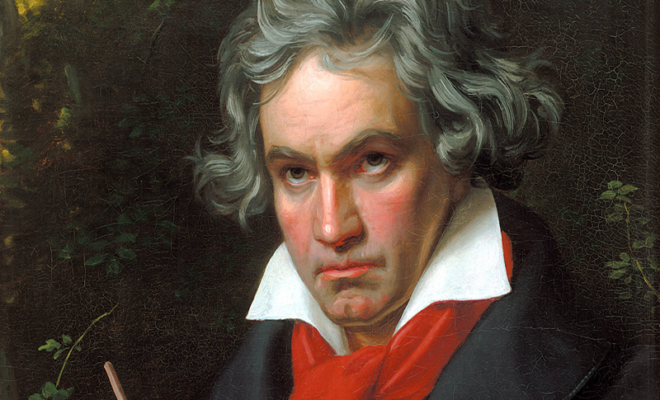Scientists Complete Beethoven’s Symphony No 10 With the Help of Artificial Intelligence

Last updated on September 27th, 2021 at 09:44 am
![]() Bonn – Musicologists and fans of western classical music maestro Ludwig van Beethoven have lamented for years over his incomplete Symphony No. 10. At last, a group of scientists designed a device with the help of artificial intelligence (AI) and taught the entire work and creative method of Beethoven to the device.
Bonn – Musicologists and fans of western classical music maestro Ludwig van Beethoven have lamented for years over his incomplete Symphony No. 10. At last, a group of scientists designed a device with the help of artificial intelligence (AI) and taught the entire work and creative method of Beethoven to the device.
On 9 October 2021, the entire recording of Beethoven’s Symphony No. 10 will be officially released. The very same-day world premiere performance is scheduled to take place in Bonn, Germany.
Beethoven was baptized on 17 December 1770 and was born in Bonn, Germany. In western music, Beethoven is widely regarded as the most famous and loved music composer of all time.
When he was 26 years old, Beethoven started to hear ringing and buzzing sounds in his ears. In 1800, when he was 30, he wrote a letter to his childhood friend from Vienna that he has been experiencing some hearing problem.
Beethoven tried hard to keep the problem a secret from those most akin to him. He feared it would destroy his career if anyone came to know about it.
Beethoven had played and heard music for the initial thirty years of his life; he knew at the back of his mind how the instruments and voices sounded. Instead of a sudden loss of hearing, his deafness deteriorated slowly, and he could imagine in his mind how his composition would sound.
Related Posts
In his initial works, when Beethoven’s hearing was fine, he utilized higher notes in his compositions. However, as his hearing fizzled, he started to utilize the lower notes in his compositions. For example, the Moonlight Sonata, his six symphonies, and the main opera Fidelio were composed during this time.
He had begun work on his Tenth Symphony; however, due to ill health, he couldn’t complete it; all he left behind were some melodic sketches.
In 1827, he contracted pneumonia, from which he never completely recuperated. He became bedridden and died from liver cirrhosis in Vienna on 26 March 1827.
The reason for his hearing loss at a young age was found in the post-mortem after his demise; doctors discovered he had an inner ear infection or acute otitis media, which formed lesions over time.
Beethoven is remembered for many compositions, such as his Symphony No. 1, Symphony No. 5, and Symphony No 9, which ends with the famous “Ode to Joy.” Surely the maestro’s more than hundred-year-old Symphony No. 10 that is completed by an AI will add another remarkable composition to his musical work.



